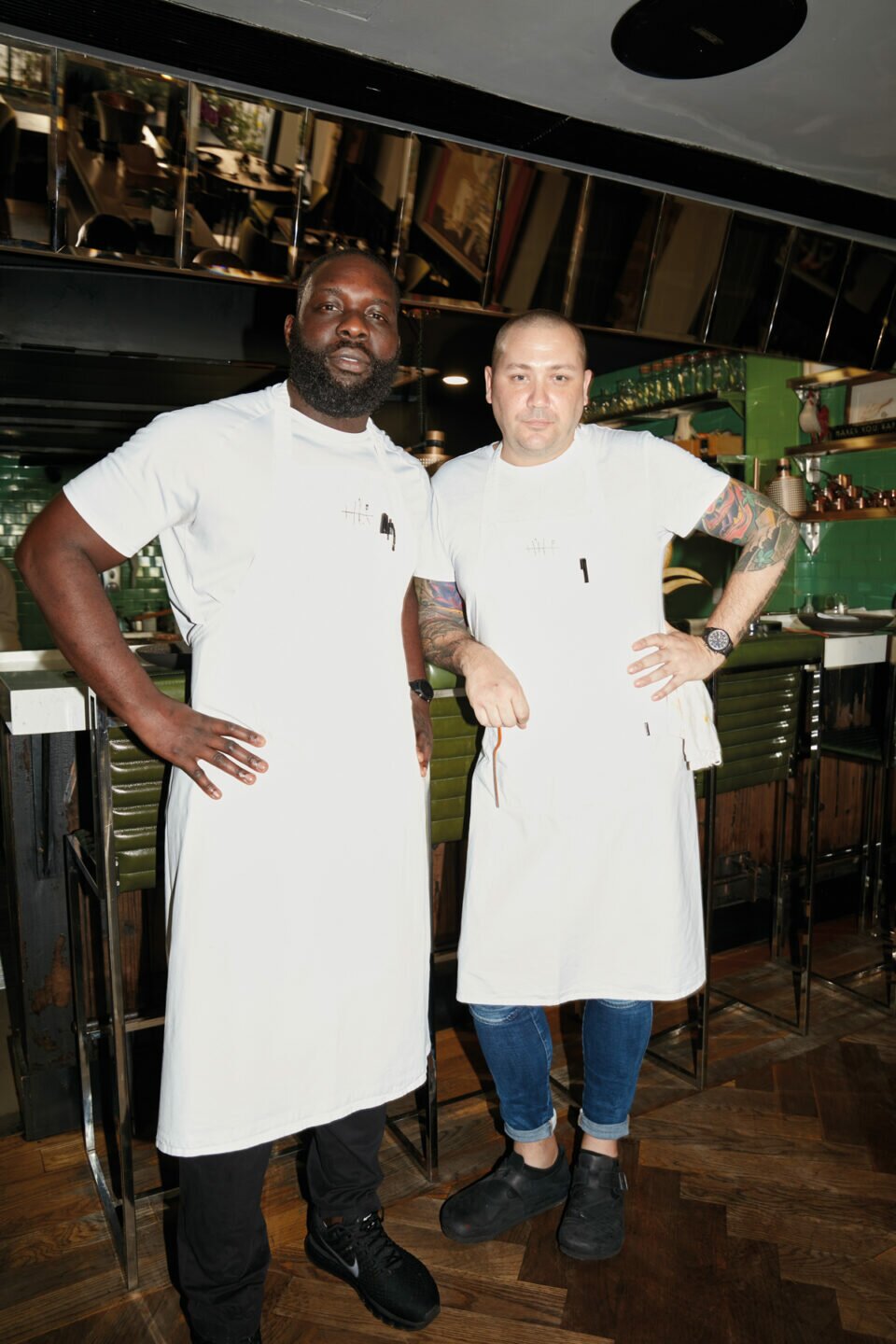Chef Ryan Clift has been called a “bad boy” so many times over his 30-year career, with 14 of those years spent helming Tippling Club in Singapore, that his spontaneous, stony response, “I don’t know where it comes from”, implies that he does indeed know where it came from, but is done with the moniker.
“Look at me. Butter wouldn’t melt in my mouth,” he says in an amusingly flat voice. “A lot of those stories came from when I was working in Australia and London. I did not spread them. I think the younger chefs feared me, so they talked. Maybe it’s also because I never take no for an answer or the way I carry myself in interviews can come across as quite laddish and cheeky. I don’t know,” he shrugs.
Wiltshire-born Clift is probably right on all fronts, since the only thing he’s never minced are his words. At the start of our interview over Zoom, he casually remarked to someone off-camera — while he was very much on camera — that he had forgotten he had an interview to do today. This interview.
But we don’t need chefs to be nice. We just need their food to be good, and Tippling Club’s many awards, including placing 27th in Asia’s Best Restaurants 2017 and 43rd in The World’s 50 Best Bars 2021, prove Clift knows his stuff. While he maintains that he doesn’t care what label he gets as long as he’s remembered for excellent food, he also insists he’s good because he looks out for his team. Their safety and well-being are at the core of his decision to no longer accept last-minute dietary requests. The revelation is not a cause for pitchforks and torches. Tippling Club will continue to serve a vegetarian menu as it has since its inception, and will be willing to make substitutions with advance notice.
“If they only notify us once they arrive, it’s too late. We’ll end up having one server spend 15 minutes on this table, making sure every piece of information is on the docket, and I’ll need to take another guy out of service to create this new menu,” he explains. “I’m sick and tired of people following fad diets and allergies. I once heard someone say ‘anaphylactic’. I later saw them eat off of their friend’s plate. When I went over to ask if they had their EpiPen, they said they weren’t that allergic. Meanwhile, the entire team was panicking and questioning everything we served them that night.”
This decision also helps to streamline the kitchen’s workflow, especially now that Tippling Club has recently shifted to tasting menus only for both its lunch and dinner service. “The sheer amount of touches our plates have — even our snacks have nine to 12 little details — can be mentally challenging.”
The pandemic has shuttered many F&B establishments, but even the ones nimble enough to ride it out had serious staffing issues with foreign employees returning to their respective countries. Zoom events, online masterclasses and delivery options helped Tippling Club stay afloat during the height of pandemic-related restrictions. But now that the country is opening back up, Clift is excited to get the restaurant firing on all cylinders again.
Still, he has kept the restaurant’s two-day closure and is giving his staff half a day off a week “so they can have a bit more of a life outside work,” he shares. “Some restaurants just don’t care and drive their staff into the ground until they break, and then just replace them. Chef Ayo Adeyemi and I run a strict and tight kitchen, but it’s a wonderful atmosphere.”
Guests who sit around the chef’s table have often commented on how quiet the kitchen is, with everyone and everything moving like a well-oiled machine. They have to, because Clift’s new prix fixe menus demand precision “to the last degree, gram and second”. Besides that, they rotate fortnightly to take advantage of the freshest ingredients available, so there is no time for complacency. Clift needs the stimulation.
“Some restaurants only change their menus once a year, or just change the proteins or the fruit in what is essentially the same dish. That would bore the shit out of me and our regulars.” The menus aren’t the only things changing. “My food has become more adult. I have better ingredients, a smarter, cleaner presentation, and more elegant techniques now,” he says.
His food hasn’t been the only thing that has matured. Creativity like his inspires copycats, and he never used to let them off the hook. “I would get furious, email them, smear them on social media. But life’s too short. Now I see it as a compliment. There’s a two-star restaurant in Europe doing my foie gras cheesecake, but I won’t name them.”
What has remained a constant in Clift’s career is his quest for the ultimate validation. “Of course, we are aiming for a Michelin star. I feel like [the Michelin Guide] has overlooked us over the last few years,” he says. “Chef Ayo and I have worked our whole lives for it, so we’d like to get it and revel in that moment because we know we deserve it. I used to feel that it would be enough as long as my guests and peers know we deserve it. It’s not. We have the standard, so it’s up to them to award us.”



